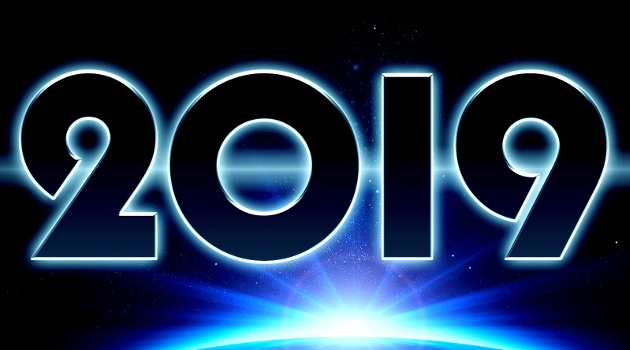I started my end-of-year “best and worst” series back in 2013, but didn’t begin my start-of-year “hopes and fears” series until 2017.
In that first year, I got part of what I hoped for (some tax reform and a bit of regulatory easing) and part of what I feared (no Medicaid and Medicare reform), but I mostly felt relieved that some of my fears (border-adjustment tax and an infrastructure boondoggle) weren’t realized.
For 2018, none of my hopes (government collapse in Venezuela and welfare reform) became reality, but we dodged one of my fears (Trump killing NAFTA) and moved in the wrong direction on another (a bad Brexit deal).
Time for third edition of this new tradition. It is the first day of the year and here are my good and bad expectations for 2019.
We’ll start with things I hope will happen in the coming year.
- Hard Brexit – There is a very strong long-run argument for the United Kingdom to have a full break with the European Union. Unfortunately, the political establishment in both London and Brussels is conspiring to keep that from happening. But the silver lining to that dark cloud is that the deal they put together is so awful that Parliament may vote no. Under current law, that hopefully will lead to a no-deal Brexit that gives the U.K. the freedom to become more free and prosperous.
- Supreme Court imposes limits of Washington’s power – I didn’t write about the fight over Brett Kavanaugh’s nomination to the Supreme Court because I don’t know if he believes in the limits on centralized power in Article 1, Section 8. But I’m semi-hopeful that his vote might make the difference in curtailing the power of the administrative state. And my fingers are crossed that he might vote with the Justices who want to restore the Constitution’s protection of economic liberty.
- Gridlock – Some people think gridlock is a bad thing, but it is explicitly what our Founders wanted when they created America’s separation-of-powers system. And if the alternative to gridlock is politicians agreeing to bad policy, I will cheer for stalemate and division with great gusto. I will be perfectly content if Trump and House Democrats spend the next two years fighting with each other.
- Maduro’s ouster – For the sake of the long-suffering people of Venezuela, I’m going to keep listing this item until it eventually happens.
- Limits on the executive branch’s power to impose protectionism – Trade laws give a lot of unilateral power to the president. Ideally, the law should be changed so that any protectionist policies proposed by an administration don’t go into effect unless also approved by Congress.
- Chilean-style reform in Brazil – Brazil recently elected a president who is viewed as the Trump of Latin America. But he might be the good kind of populist who uses his power to copy Chile’s hugely successful pro-market reforms.
Here are the things that worry me for 2019.
- Trump – The President does not believe in small government, so I’m concerned we may get the opposite of gridlock. In my nightmare scenario, I can see him rolling over to Democrat plans for a higher minimum wage, infrastructure pork, wage subsidies, and busting (again) the spending caps.
- Recession-induced statism – If there’s an economic downturn this year, then I fear we might get an Obama-style Keynesian spending orgy in addition to all the things I just mentioned.
- More protectionism – Until and unless there are limits on the president’s unilateral power, there is a very real dangers that Trump could do further damage to global trade. I’m particularly concerned that he might pull the U.S. our of the very useful World Trade Organization and/or impose very punitive tariffs on auto imports.
- Fake Brexit – This is the flip side of my hope for a hard Brexit. Regardless of the country, it’s not easy to prevail when big business and the political elite are lined up on the wrong side of an issue.
Sadly, I think my fears for 2019 are more likely than my hopes.
And I didn’t even mention some additional concerns, such as what happens if China’s economy suffers a significant downturn. I fear that is likely because there hasn’t been much progress on policy since the liberalization of the 1980s and 1990s.
Or the potential implications of anti-market populism in important European nations such as Germany, Sweden, and Italy.
in important European nations such as Germany, Sweden, and Italy.
Last but not least, we have a demographic sword of Damocles hovering over the neck of almost every nation.
That was a problem last year, it’s a bigger problem this year, and it will become an even-bigger problem in future years.
We know the right answer to this problem, but real solutions are contrary to the selfish interests of politicians.
———
Image credit: darkmoon1968 | Pixabay License.

